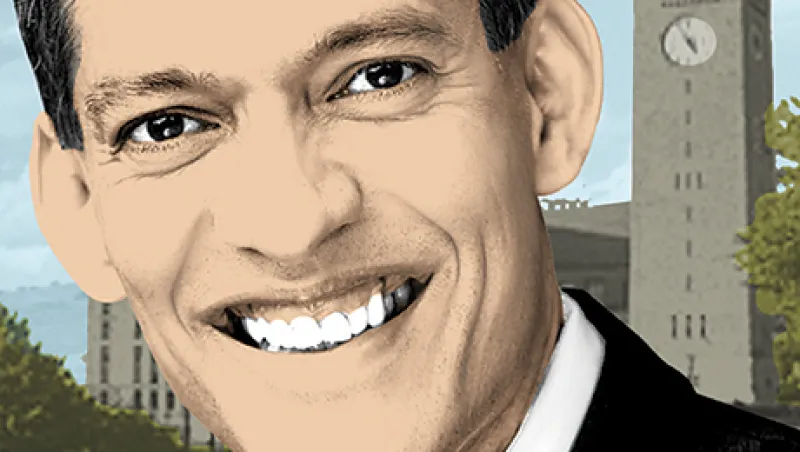The dollar has endured repeated crises since 1960, when economist Robert Triffin postulated his famous dilemma: The U.S. needed to run balance of payments deficits to supply the world with greenbacks, but those deficits would ultimately undermine confidence in the currency. Yet more than five years after a global financial calamity that originated in the U.S., the dollar remains as central as ever to the financial system. In his new book, The Dollar Trap: How the U.S. Dollar Tightened Its Grip on Global Finance, Eswar Prasad, a Cornell University economist who previously headed the International Monetary Fund’s China division, argues that the dollar’s fragility has actually entrenched its pivotal role. Prasad, 48, recently spoke with International Editor Tom Buerkle.
The dollar seems to have been in crisis for decades. What’s different now?
The financial crisis has been a very interesting game changer, but in the opposite direction of what had been expected. Before the crisis, with the U.S. current account at very high levels, it seemed very likely that with Europe looking strong and China growing strongly, the stars were aligning for the dollar to be knocked off its perch.
Then the crisis came along, and it led to a substantial increase in the demand for financial safe assets, from emerging-markets economies in particular. U.S. policies themselves are adding to capital flow volatility, with quantitative easing pushing a lot of capital out and now the hint of a taper pulling capital out of emerging markets. So emerging markets want more protection in the form of reserves. And where do they go to put the reserves? In the U.S.
Is that good for the U.S.?
At one level, having the dollar be the dominant world currency is good. There is the aspect of prestige. There is seigniorage revenue because it costs the government nothing to print the money but they can buy real goods and services with that money.
The big paradox here is that the rest of the world comes to the U.S. for protection, and the rest of the world gets lousy returns on its money because Treasury securities are paying nothing. And the other curious thing is that although the dollar is very strong in its role as a global currency, the actual value of the dollar has been falling over the past decade and a half by 1 percent a year on average. Everybody knows the dollar has to depreciate some more in order for the U.S. trade deficit to continue declining, but because the rest of the world wants dollars so much, that keeps the dollar from depreciating as much as it otherwise should.
Things don’t change, until they do. What could prompt a sea change in the dollar’s role?
In the book I talk about various tipping-point scenarios. One could be where China says, “Yes, it is going to hurt me if I sell down some of my U.S. Treasuries, but the U.S. has been doing crazy things, so we’re going to do this anyway.” Another possibility is that the yield curve could shift up very sharply, causing panic in financial markets. But here’s the thing: Any of these scenarios is going to lead to a lot of turmoil. And when there is turmoil, what do investors do? They look for safety. And when you look for safety, where can you go? The U.S. dollar.
How big a factor is the lack of alternatives?
That’s the key issue. Let’s say the Europeans got together, reformed their macroeconomic position and put in place institutions to make the euro zone hang together well. The euro could become a viable competitor, but the markets are not deep enough to sustain the amount of debt that the U.S. is able to provide.
China is almost certainly going to become a competitor in one sense, that the renminbi will become more accepted internationally for trade and financial transactions. Countries like Nigeria and Chile have indicated that they’re going to hold maybe 5 to 10 percent of their reserves in renminbi. And that, I think, is where we’ll end up. But China is not, with its present political and legal structure, going to be considered a safe haven. The Chinese themselves don’t trust China. A lot of Red Chinese have much of their money offshore because they fear it could be expropriated. And foreign investors have a similar fear.
America’s political hegemony has eroded dramatically. Will that have an impact on the dollar?
Logically, it should. I think the problem has become the very flawed structure of the international monetary system. Emerging markets have become much more open to capital flows, so they want more protection. There is a lot more turmoil in financial markets, so ordinary investors want more protection. All those factors that have led to the demand for safe assets increasing are not being met on the other side. In international finance everything is relative. And relatively speaking, the U.S. still remains very strong.






